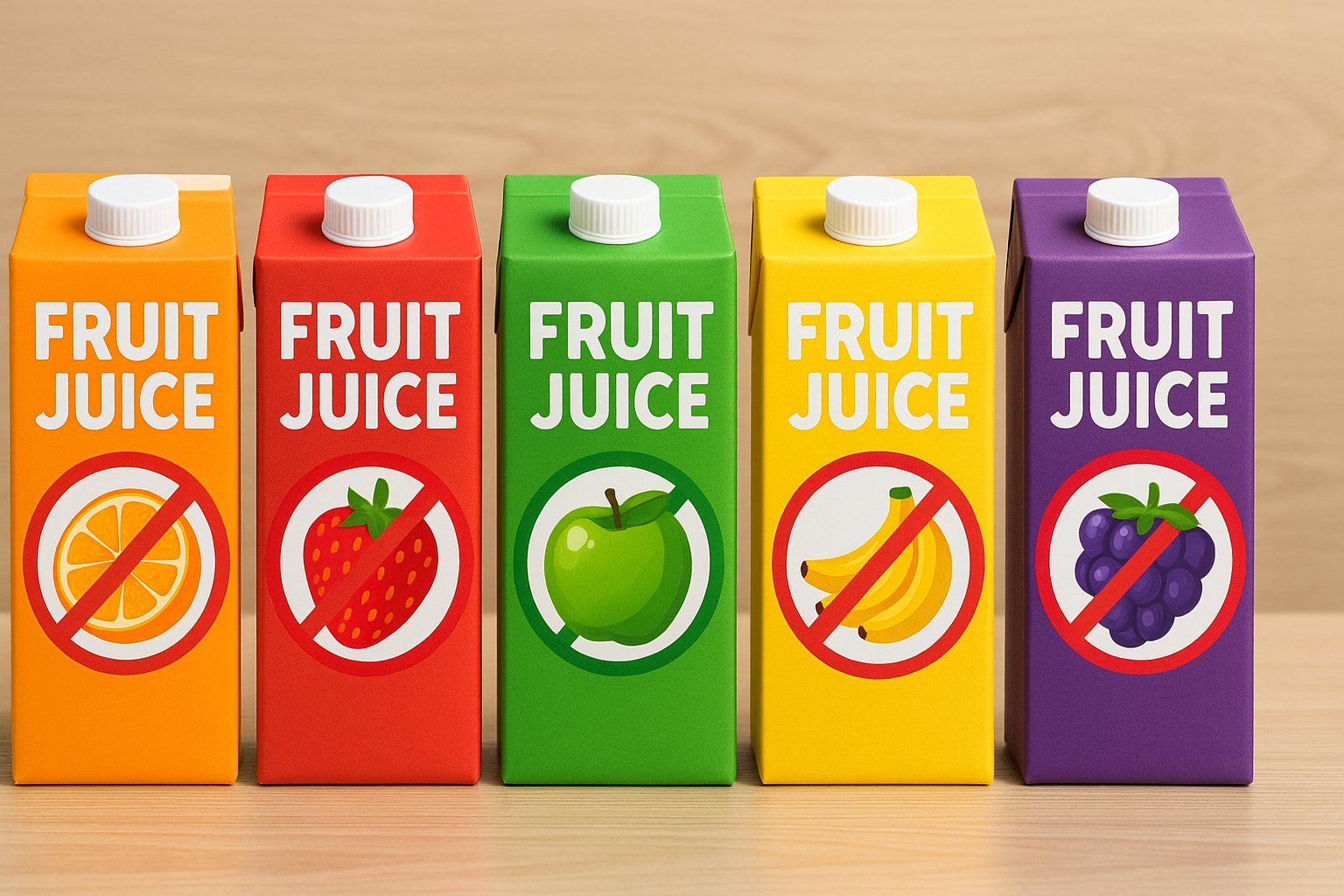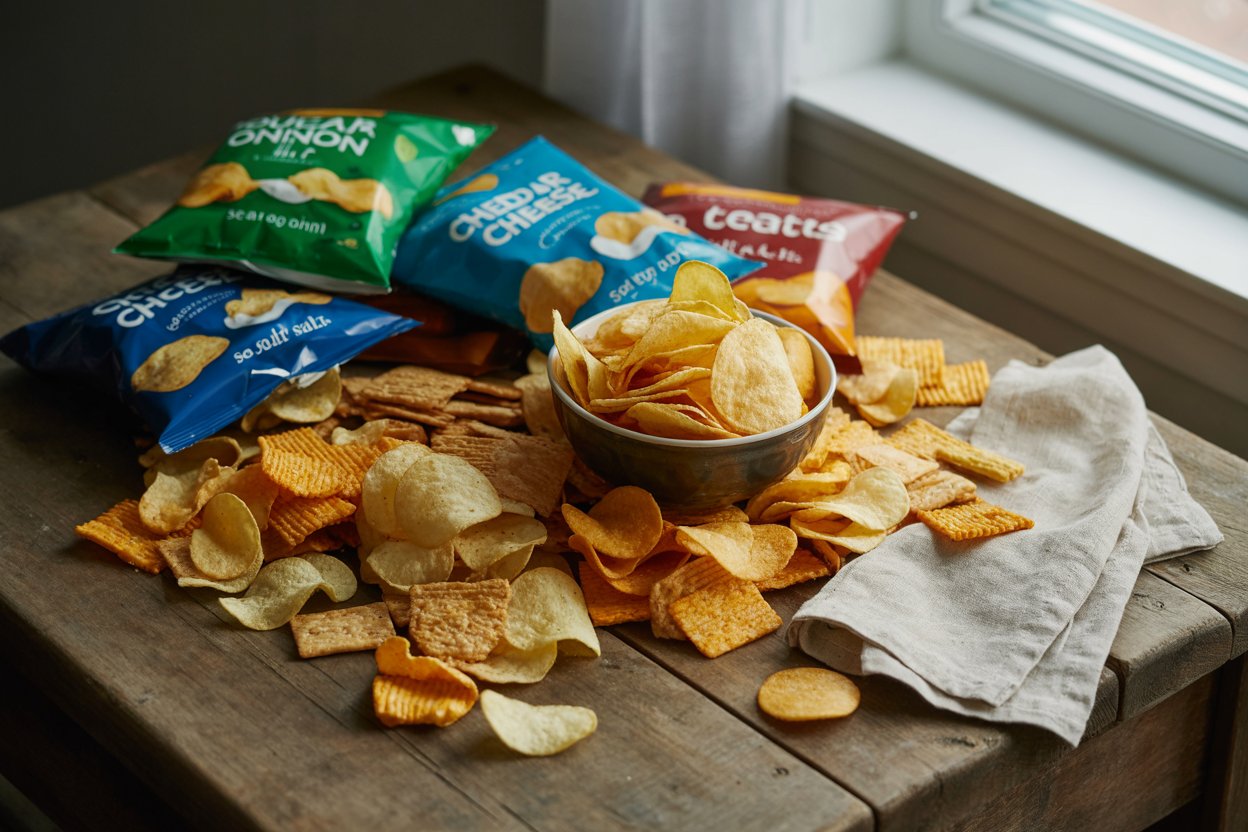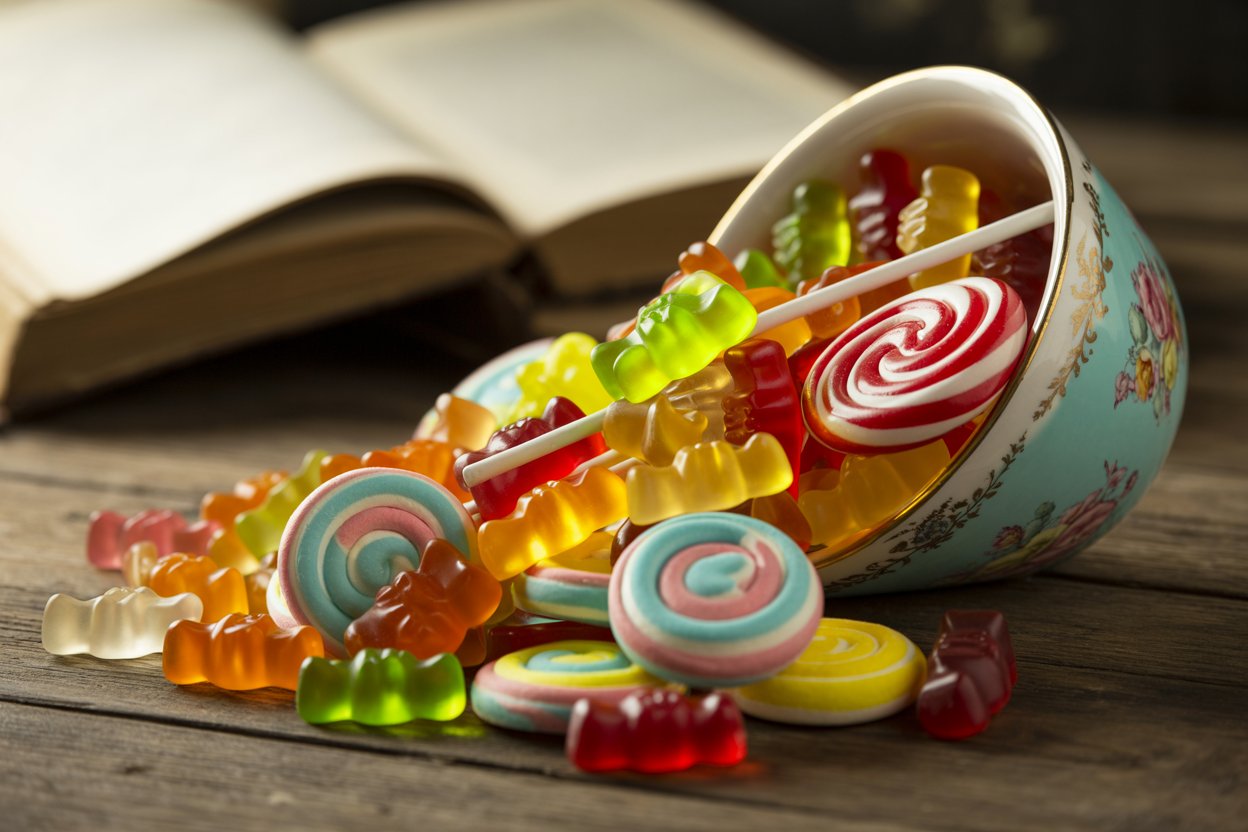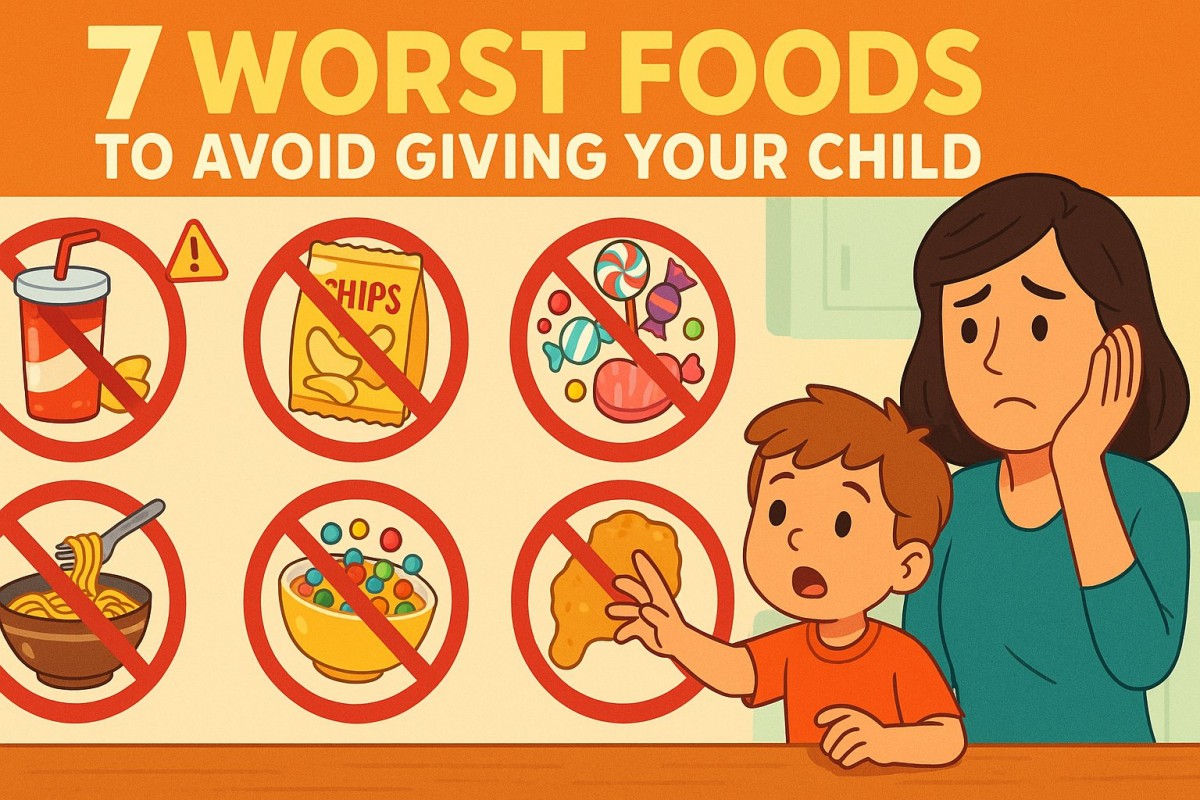Not sure about which foods to avoid in your child's diet?
No worries, we've got you covered with the worst foods that you need to cut out immediately.
Nutrition plays a vital role in a child's growth, immunity and even behaviour, but you need to note that not all foods marketed to children are as harmless as they seem. In fact, many everyday snacks and meals can negatively impact their health in the long run.
Here is the list of the top seven worst foods that you should keep off your child’s plate.
1. Sugary Cereals
The first and foremost thing to be diminished from your child's diet is that the colored boxes and cartoon mascots might make sugary cereals irresistible, but they’re nutritional landmines. These cereals contain over 10 grams of sugar per serving which is far more than the daily recommended sugar intake for children.
Why it's harmful:
High sugar intake in early childhood might lead to obesity, type 2 diabetes, tooth decay, and behavioural issues like hyperactivity.
According to the American Heart Association, children under 2 should consume no added sugar at all, and kids aged 2 to 18 should limit it to 25 grams per day.
An alternative that you can incorporate is whole-grain, unsweetened cereals such as oats or whole wheat flakes, topped with fresh fruits of your choice.
2. Packaged Fruit Juices
 Fruit juices are generally considered to be healthy, but most of the packaged juices are loaded with high amounts of added sugars and lack the fibre found in whole fruits. Even "100% fruit juice" options should be given sparingly.
Fruit juices are generally considered to be healthy, but most of the packaged juices are loaded with high amounts of added sugars and lack the fibre found in whole fruits. Even "100% fruit juice" options should be given sparingly.
Why it's harmful:
Excessive juice consumption contributes to childhood obesity, poor appetite for whole foods, and early tooth decay, according to the American Academy of Paediatrics.
Instead of that, you can offer them whole fruits and water, or you can prepare at home without any added sugars. If giving juice, limit it to 4 oz (about 120 ml) per day for kids aged 1–3, and 4–6 oz for children aged 4–6.
3. Processed Meats (Hot Dogs, Bacon, Sausages)
Hot dogs may be a party staple, but processed meats are high in sodium, nitrates, and preservatives that are not safe for young children.
Why it's harmful:
According to the study published by the World Health Organisation (WHO), it is observed that processed meats are Group 1 carcinogens, reflecting the high chances of having cancer even if consumed in low amounts.
Keeping them apart you can opt for homemade lean protein options such as grilled chicken, turkey breast, or lentil patties.
4. Potato Chips and Snack Crackers
 Generally, those crunchy snacks are heavily preferred by kids aged below 10, but these ultra-processed snacks are extremely low in nutrients and packed with high amounts of sodium, unhealthy fats, and artificial additives.
Generally, those crunchy snacks are heavily preferred by kids aged below 10, but these ultra-processed snacks are extremely low in nutrients and packed with high amounts of sodium, unhealthy fats, and artificial additives.
Why it's harmful:
Regular consumption of salty snacks can increase the risk of having high blood pressure, weight gain, and even addictive eating behaviour. Testifying to such facts, the Centres for Disease Control and Prevention (CDC) warns against too much sodium in children's diets, since most kids already exceed their daily limit.
Instead of those unhealthy packs, you can choose air-popped popcorn (without butter), roasted chickpeas, or whole-grain crackers, which comprise optimum amounts of protein and fibre.
Also read - Top 10 Healthy Snacks
5. Sodas and Sugary Drinks
These sodas and sugary drinks are among the worst offenders in children's diets, offering nothing but empty calories and chemicals.
Why it's harmful:
They are harmful for this reason that these sugar-sweetened beverages are a leading contributor to childhood obesity and type 2 diabetes. In this regard, the Harvard School of Public Health conducted a study that found that each additional daily serving of a sugary drink increases a child’s risk of obesity by 60%.
Stick to water, milk, and diluted fruit-infused water for hydration.
Also read - Truth about Diet Soda
6. Candy and Gummies
 Having sweets occasionally isn’t harmful, but many candies, especially gummies and hard candies, are sugar bombs that stick to teeth and fuel cavities.
Having sweets occasionally isn’t harmful, but many candies, especially gummies and hard candies, are sugar bombs that stick to teeth and fuel cavities.
Why it's harmful:
Other than tooth decay, excessive sugar can suppress immunity and contribute to poor gut health. Artificial colours and flavours in these treats are also linked to behavioural concerns in some children, as denoted by European Food Safety Authority (EFSA) reviews.
It's highly tough to keep kids far from gummies and candies, but you can prefer sweet snacks such as dates, raisins, or homemade energy balls.
7. Instant Noodles
Quick, cheap, and tasty but unfortunately, these noodles are also loaded with sodium, preservatives, and very low actual nutrition.
Why it's harmful:
A standard packet of instant noodles can contain over 800 mg of sodium which reflects over half of a young child's daily limit. They also lack fibre, protein, and essential vitamins, making them a poor dietary staple.
If you're short on time, consider whole wheat pasta with vegetables or homemade soups with lentils and rice.
Read more on - Healthy Diet
The Bottom Line
Childhood nutrition is not everything regarding a perfect diet plan, it's all about a healthy pattern of eating. Occasional treats are fine, but regularly consuming processed, sugary, or salty foods can have long-term consequences on your child’s health and development. As a rule of thumb, choose whole, unprocessed, and colourful foods that nourish both body and brain.
Small, consistent changes in daily meals can go a long way in building healthier habits for life.
